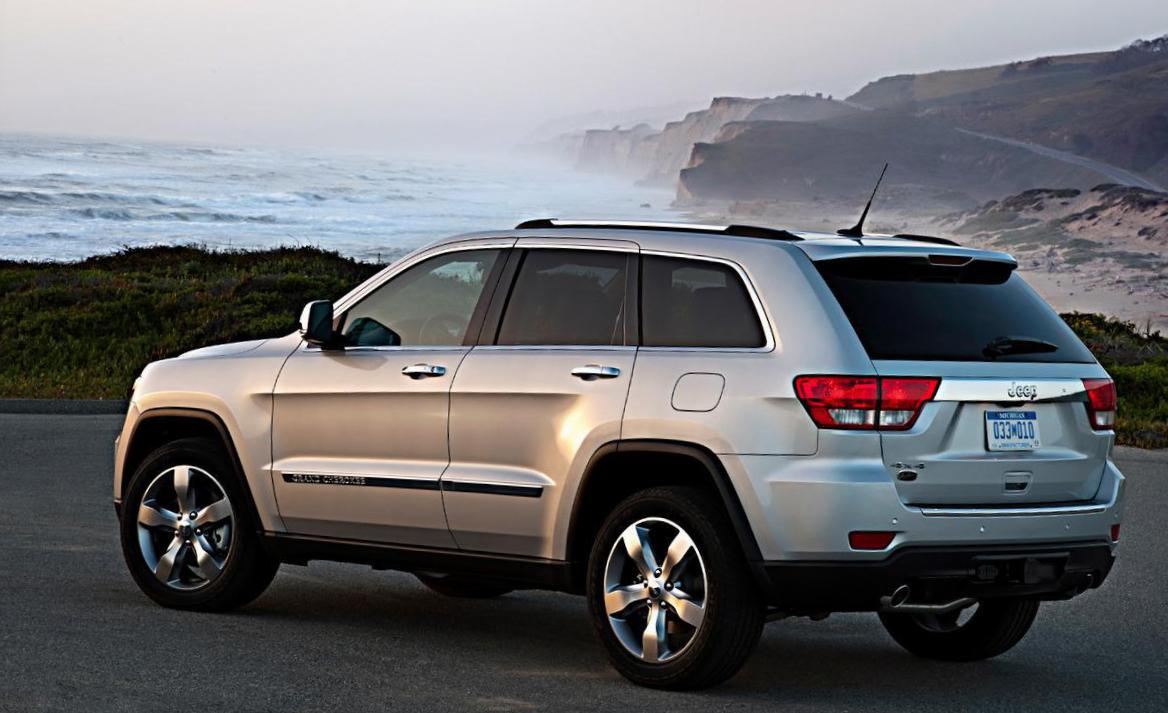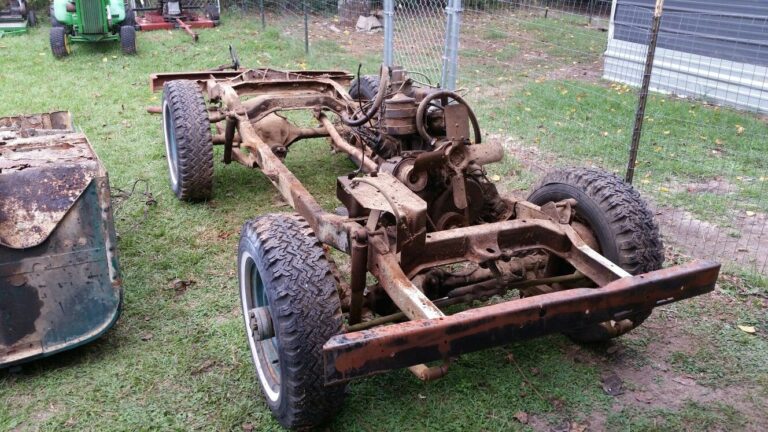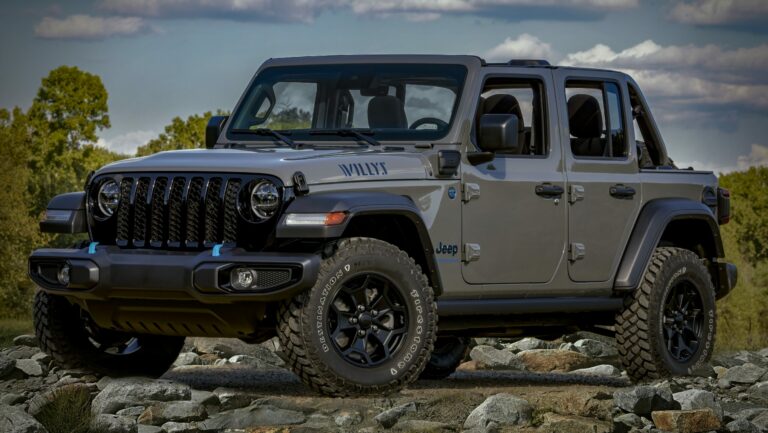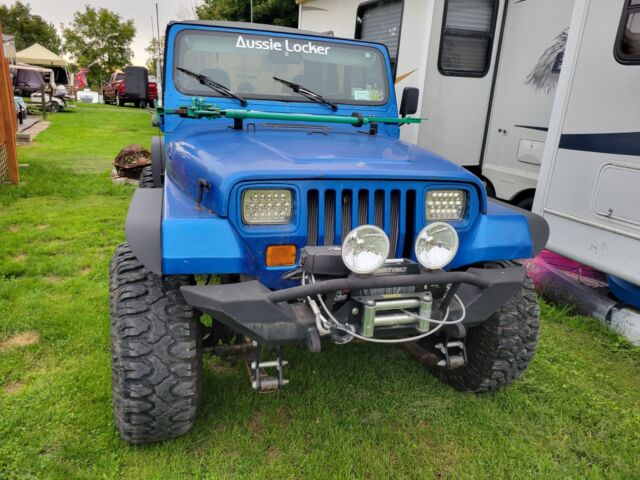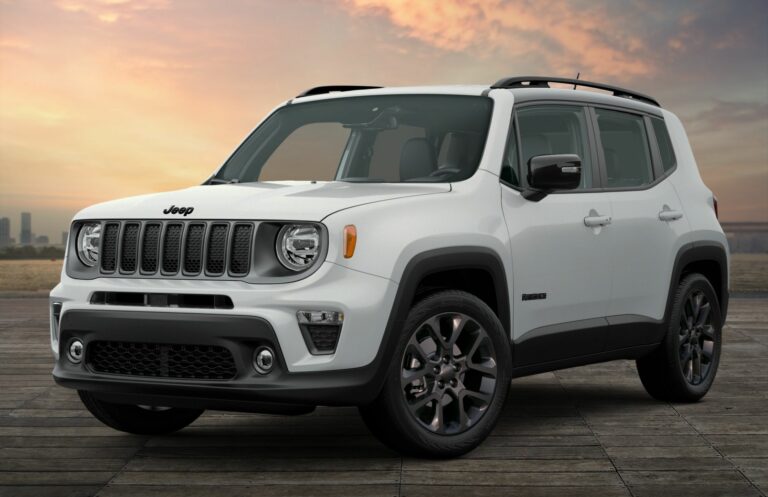Jeep Grand Cherokee Lease Vs Buy: Navigating Your Path to Automotive Ownership
Jeep Grand Cherokee Lease Vs Buy: Navigating Your Path to Automotive Ownership jeeps.truckstrend.com
The Jeep Grand Cherokee stands as an icon of capability, luxury, and rugged elegance. For decades, it has been a favorite among those seeking a versatile SUV that can handle both urban commutes and adventurous off-road excursions with equal aplomb. Its blend of sophisticated interiors, powerful engine options, and legendary Jeep 4×4 capability makes it a compelling choice for a wide array of drivers.
However, once you’ve set your sights on a Grand Cherokee, a fundamental decision awaits: should you lease it or buy it? This choice is far more than a mere transaction; it’s a financial commitment that shapes your driving experience, long-term costs, and overall flexibility. Understanding the nuances of leasing versus buying is crucial for making an informed decision that aligns with your financial situation, lifestyle, and automotive preferences. This comprehensive guide will dissect the pros and cons of each option, offering practical insights to help you navigate the path to bringing a Jeep Grand Cherokee into your life.
Jeep Grand Cherokee Lease Vs Buy: Navigating Your Path to Automotive Ownership
Understanding the Jeep Grand Cherokee Appeal
Before diving into the financial mechanics, it’s worth reiterating why the Jeep Grand Cherokee remains a top contender in the mid-size SUV segment. It offers a spectrum of trims, from the well-appointed Laredo to the opulent Summit Reserve and the performance-oriented SRT or Trackhawk (in previous generations), as well as the family-friendly three-row Grand Cherokee L. This diversity ensures there’s a Grand Cherokee for nearly every budget and need. Its robust build, comfortable ride, advanced technology features, and strong resale value further cement its appeal, making the lease vs. buy decision a significant one for a vehicle of this caliber.
The Case for Leasing a Jeep Grand Cherokee
Leasing a vehicle is essentially paying for the depreciation of the car over a set period, plus interest and fees. It’s often likened to a long-term rental, offering a distinct set of advantages and disadvantages.
Benefits of Leasing:
- Lower Monthly Payments: This is often the most attractive aspect. Lease payments are typically significantly lower than loan payments for the same vehicle because you’re only financing a portion of the car’s value (its depreciation) rather than the entire purchase price.
- Access to Newer Models More Frequently: Lease terms usually range from 24 to 48 months. This means you can drive a new Grand Cherokee every few years, always enjoying the latest technology, safety features, and styling updates without the hassle of selling your old car.
- Consistent Warranty Coverage: Since you’re driving a new vehicle every few years, your Grand Cherokee will almost always be under the manufacturer’s bumper-to-bumper warranty. This significantly reduces your out-of-pocket expenses for unexpected repairs.
- Lower Upfront Costs: While a down payment can reduce your monthly lease payment, it’s often not required, or the required amount is much lower than for a purchase. You’ll typically pay acquisition fees, the first month’s payment, and potentially a security deposit.
- Tax Advantages (for Businesses): If you use the Grand Cherokee for business purposes, lease payments may be tax-deductible, offering a financial incentive.
- No Resale Hassle: At the end of the lease, you simply return the vehicle to the dealership (assuming it meets mileage and wear-and-tear guidelines), eliminating the stress and effort of selling or trading in a used car.

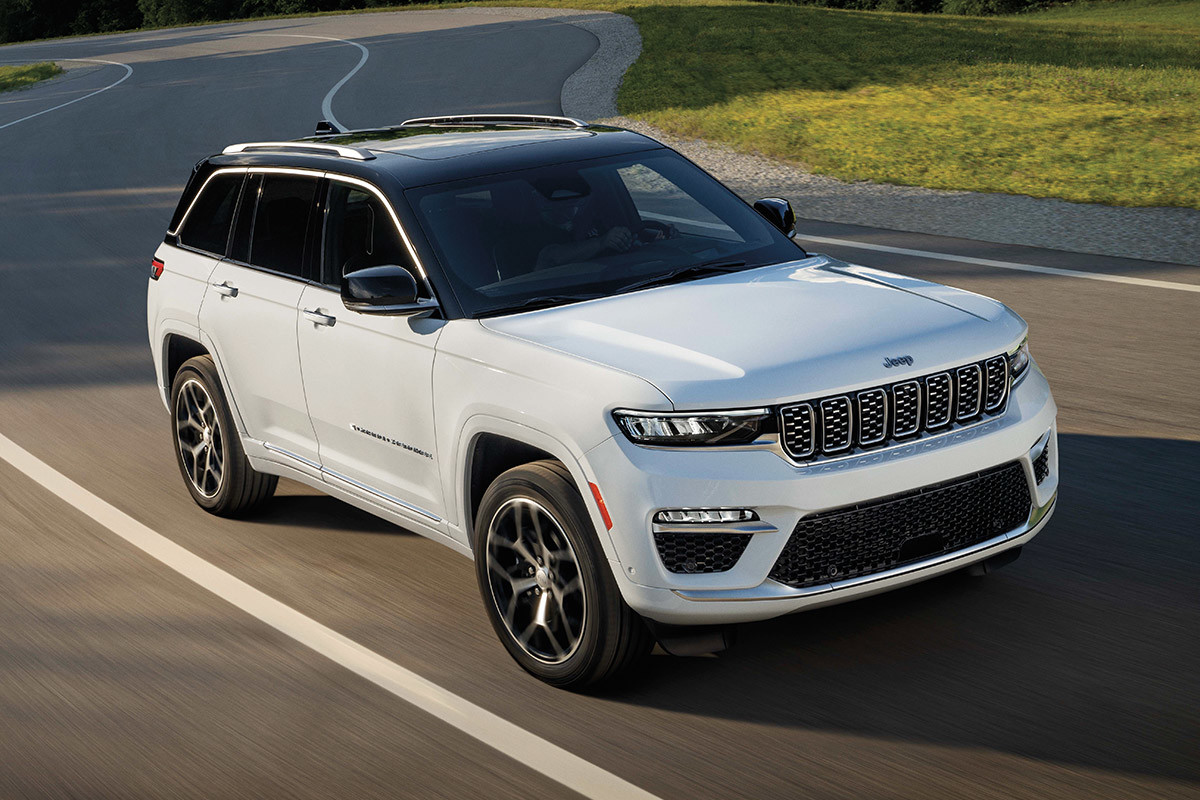
Considerations and Challenges of Leasing:
- Mileage Restrictions: Leases come with strict annual mileage limits (e.g., 10,000, 12,000, or 15,000 miles). Exceeding these limits incurs significant per-mile penalties (e.g., $0.20-$0.25 per mile), which can quickly add up.
- No Equity Building: You never own the car, so you don’t build any equity. At the end of the lease, you walk away with nothing unless you decide to buy it out.
- Wear and Tear Charges: While normal wear and tear are usually permitted, anything beyond that (e.g., dents, significant scratches, torn upholstery) will result in charges when you return the vehicle.
- Early Termination Fees: Breaking a lease early can be extremely expensive, often requiring you to pay the remaining payments, a termination fee, and potentially other charges.
- Limited Customization: Since you’re returning the vehicle, making permanent modifications is generally not advisable or allowed.
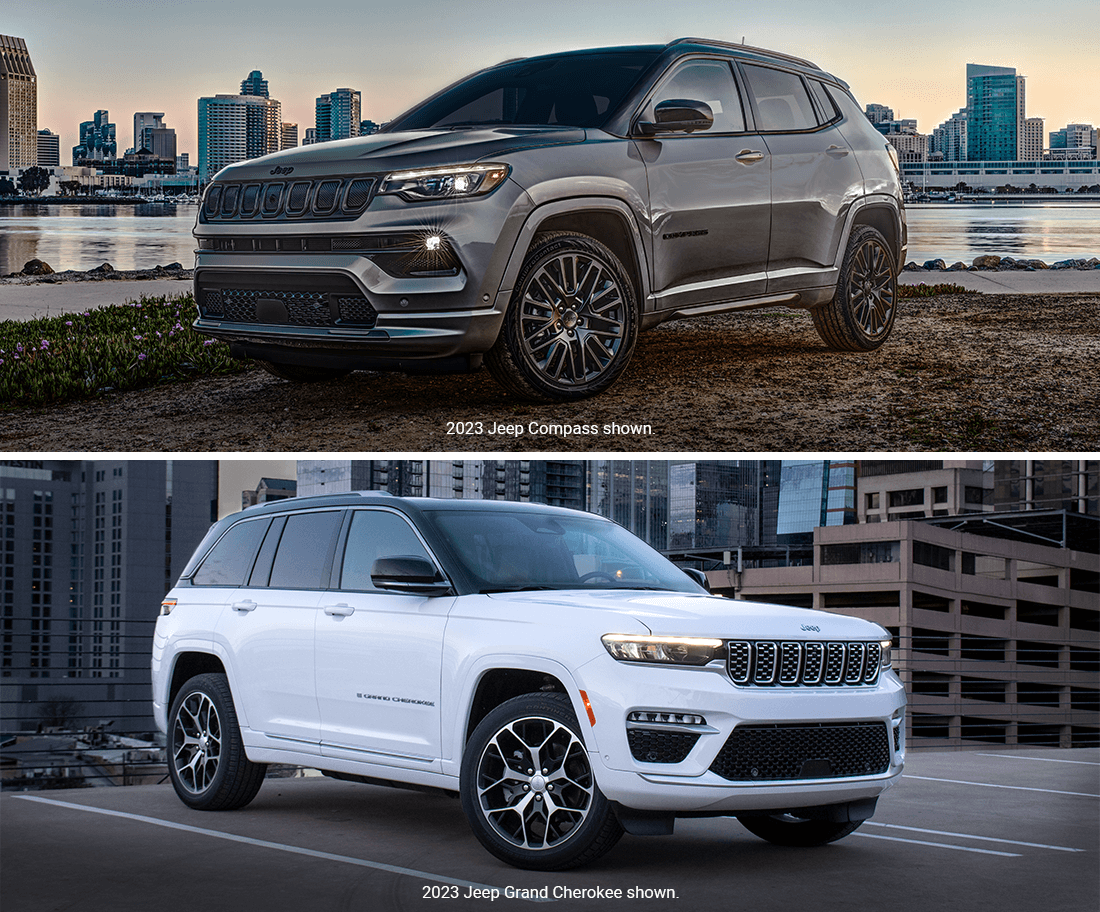
The Case for Buying a Jeep Grand Cherokee
Buying a vehicle, whether through a traditional loan or an outright cash purchase, means you own the asset. This path offers a different set of financial implications and personal freedoms.
Benefits of Buying:
- Ownership and Equity Building: Every payment you make contributes to building equity in the vehicle. Once the loan is paid off, you own the Grand Cherokee outright, and it becomes a tangible asset.
- No Mileage Restrictions: You can drive as much as you want without worrying about penalties. This is ideal for high-mileage drivers or those who embark on frequent road trips.
- Freedom to Customize: As the owner, you’re free to modify, accessorize, or personalize your Grand Cherokee as you see fit, without concern for lease-end penalties.
- Long-Term Cost Savings (Potentially): While initial monthly payments are higher, once the loan is paid off, you have no car payments. Keeping the vehicle for many years after paying it off can make buying significantly cheaper in the long run compared to continuously leasing.
- Resale Value Potential: The Grand Cherokee generally holds its value well. When you decide to sell or trade it in, you can recoup a portion of your original investment.
- No End-of-Term Hassles (Mileage/Wear): You don’t have to worry about excess mileage charges or wear-and-tear fees when it’s time to move on.
Considerations and Challenges of Buying:
- Higher Monthly Payments: Loan payments are typically higher than lease payments because you’re financing the entire purchase price of the vehicle.
- Depreciation: Vehicles, especially new ones, depreciate rapidly in the first few years. You bear the full brunt of this depreciation.
- Maintenance Costs Post-Warranty: Once the manufacturer’s warranty expires (typically after 3 years/36,000 miles), you are responsible for all repair and maintenance costs.
- Sales Tax: You generally pay sales tax on the full purchase price of the vehicle upfront or rolled into the loan.
- Trade-in/Selling Hassle: When you’re ready for a new vehicle, you’ll need to sell your Grand Cherokee privately or negotiate a trade-in value with a dealership, which can be time-consuming and sometimes frustrating.
Key Factors to Consider When Deciding
The lease vs. buy decision for a Jeep Grand Cherokee isn’t one-size-fits-all. Your personal circumstances should heavily influence your choice.
-
Financial Situation:
- Down Payment: How much cash do you have available for a down payment? A larger down payment reduces loan payments but might not be as beneficial for a lease.
- Monthly Budget: What can you comfortably afford each month for a vehicle payment? If budget is tight, leasing often offers a lower entry point.
- Credit Score: A strong credit score (typically 700+) is crucial for getting the best interest rates on loans and favorable money factors on leases.
-
Driving Habits:
- Annual Mileage: If you drive significantly more than 12,000-15,000 miles per year, buying is almost certainly the more cost-effective option to avoid mileage penalties. If you drive less, leasing becomes more attractive.
- Vehicle Usage: Do you use your vehicle for rough off-roading, or is it primarily for city and highway driving? Excessive wear and tear from off-roading could incur lease-end charges.
-
Long-Term Plans:
- How Long Do You Keep Cars? If you typically keep vehicles for 3-5 years, leasing aligns well. If you prefer to drive a vehicle for 7-10 years or more, buying makes more financial sense over the long haul.
- Desire for New Technology: Do you crave the latest automotive innovations? Leasing allows you to frequently upgrade.
-
Maintenance Comfort Level: Are you comfortable handling maintenance and repair costs once the warranty expires? If not, the continuous warranty coverage of a lease might appeal to you.
-
Tax Implications: Consult a tax professional if you plan to use the Grand Cherokee for business to understand potential deductions for leasing vs. buying.
How to Calculate Costs (Lease vs. Buy Examples)
To truly compare, let’s look at hypothetical scenarios for a Jeep Grand Cherokee Limited 4×4 (MSRP around $50,000).
Scenario 1: 3-Year Lease
- MSRP: $50,000
- Residual Value (e.g., 60% of MSRP): $30,000
- Capitalized Cost (negotiated price): $48,000
- Money Factor (interest rate equivalent): 0.00150 (approx. 3.6% APR)
- Term: 36 months
- Annual Mileage: 12,000 miles
- Down Payment: $2,000
- Monthly Payment (approx.): $550 – $600
- Total Cost over 3 years: $2,000 (down) + ($550 x 36) = $21,800 (plus disposition fee, potential wear/tear/mileage).
Scenario 2: 5-Year Purchase (Loan)
- MSRP: $50,000
- Loan Amount (after $5,000 down payment): $45,000
- Interest Rate (e.g., 6% APR):
- Term: 60 months
- Monthly Payment (approx.): $869
- Total Cost over 5 years (loan payments + down): $5,000 (down) + ($869 x 60) = $57,140 (plus sales tax, registration, and future maintenance costs).
- At the end of 5 years, you own the vehicle, which might have a trade-in value of $25,000 – $30,000, depending on condition and mileage.
Initial Takeaway: Leasing has a much lower out-of-pocket cost over a 3-year period. However, with buying, you build equity and eventually own an asset that retains value.
Negotiation Tips for Both Options
Regardless of whether you lease or buy, negotiation is key to securing the best deal.
For Leasing:
- Negotiate the Capitalized Cost (Sales Price): This is the most crucial factor. Treat it as if you’re buying the car outright. A lower cap cost means lower monthly payments.
- Understand the Money Factor: This is the interest rate of your lease. A lower money factor is better.
- Check the Residual Value: While often set by the manufacturer, understanding it helps you assess the value proposition. A higher residual value means lower depreciation and thus lower payments.
- Be Aware of Fees: Look out for acquisition fees, disposition fees, and documentation fees.
For Buying:
- Negotiate the Out-the-Door Price: Focus on the total price including taxes and fees, not just the monthly payment.
- Secure Your Own Financing: Get pre-approved for a loan from a bank or credit union before visiting the dealership. This gives you leverage.
- Separate Trade-in and Purchase: Negotiate the price of the new Grand Cherokee first, then discuss your trade-in value.
- Decline Unnecessary Add-ons: Be firm about declining extended warranties, paint protection, or other services you don’t need.
Practical Advice and Actionable Insights
- Assess Your Mileage: Be brutally honest about how much you drive. This is often the single biggest differentiator between leasing and buying.
- Consider Your Financial Flexibility: Do you prefer lower, predictable payments, or are you comfortable with higher payments for eventual ownership?
- Think Long-Term: If you want a vehicle for 5+ years, buying is generally more economical. If you enjoy new cars every few years, leasing is a strong contender.
- Factor in Maintenance: Post-warranty repairs can be costly. If you buy, budget for these.
- Don’t Forget Insurance: Insurance costs for a Grand Cherokee can be substantial regardless of how you acquire it. Get quotes for both scenarios.
Price Table: Hypothetical Jeep Grand Cherokee Limited 4×4 (MSRP ~$50,000)
| Feature/Cost Category | Lease (36 months / 12,000 miles/year) | Buy (60 months / 15,000 miles/year) |
|---|---|---|
| Vehicle Price (MSRP) | $50,000 (Capitalized Cost Negotiated to $48,000) | $50,000 |
| Down Payment | $2,000 | $5,000 |
| Estimated Monthly Payment | $550 – $600 | $869 |
| Total Cost Over Term (Payments + Down) | $21,800 – $23,600 | $57,140 |
| Sales Tax | Paid on monthly payment (varies by state) | Paid on full purchase price (upfront or financed) |
| Acquisition/Doc Fees | $595 – $995 (Lease Acquisition) | $199 – $599 (Doc Fee) |
| Disposition Fee (Lease End) | ~$395 (if not buying new car from same brand) | N/A |
| Mileage Limit | 12,000 miles/year (excess $0.20-$0.25/mile) | None |
| Ownership at Term End | No (Option to buy at residual) | Yes |
| Equity Building | No | Yes |
| Maintenance Coverage | Under warranty for entire term | Under warranty for first 3 years/36k miles |
| Flexibility to Upgrade | High (every 3 years) | Low (requires selling/trading current car) |
| Long-Term Financial Benefit | Lower short-term cost, but no asset | Higher long-term cost initially, but asset ownership |
Note: All figures are hypothetical estimates and can vary significantly based on credit score, current interest rates, dealership promotions, specific trim levels, and negotiation.
Frequently Asked Questions (FAQ)
Q1: Is leasing always cheaper than buying?
A1: In terms of monthly payments, leasing is almost always cheaper. However, in terms of total cost over the long run (e.g., 7+ years), buying and keeping the car can be significantly more economical because you eventually stop making payments.
Q2: What happens at the end of a Jeep Grand Cherokee lease?
A2: You typically have three options: 1) Return the vehicle and lease/buy a new one, 2) Purchase the Grand Cherokee at its predetermined residual value, or 3) Extend the lease (less common).
Q3: Can I buy my leased Grand Cherokee if I love it?
A3: Yes, absolutely. Your lease agreement will specify a "purchase option price" or "residual value" that you can pay to buy the vehicle at the end of the lease term. Sometimes, you can even buy it out early.
Q4: What’s a good credit score for leasing or buying a Grand Cherokee?
A4: Generally, a credit score of 700 or higher will qualify you for the most favorable interest rates on loans and the best money factors on leases. Scores below 650 may result in higher rates or difficulty securing financing/leasing.
Q5: Does the Jeep Grand Cherokee hold its value well?
A5: The Jeep Grand Cherokee typically holds its value relatively well compared to some competitors, especially higher trims and 4×4 models. This is beneficial for both buyers (higher resale value) and leasers (can contribute to a higher residual value, thus lower payments).
Concluding Summary
The decision between leasing and buying a Jeep Grand Cherokee is a deeply personal one, with no single "right" answer. It hinges on your financial health, driving habits, long-term goals, and preference for new technology versus ownership. If you value lower monthly payments, frequent vehicle upgrades, and consistent warranty coverage, leasing might be your ideal path. If you prioritize ownership, unlimited mileage, the freedom to customize, and the long-term financial benefit of owning an asset, buying is likely the better choice.
Carefully review your budget, assess your driving patterns, and consider how long you intend to keep the vehicle. By thoroughly understanding the implications of each option and leveraging smart negotiation strategies, you can confidently drive away in your Jeep Grand Cherokee, knowing you’ve made the best decision for your unique circumstances.

